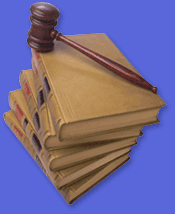Driving Symptoms

A defendant’s unusual driving is often the reason an officer pulls him or her over, hence this presumably unusual driving is often the first piece of evidence offered to the jury. On the off chance that the officer did not witness the defendant’s driving, lay witnesses or circumstantial inference become part of the corpus delicti. This typically happens when there has been an accident and the officer arrives after the fact.
Most seasoned prosecutors would agree that the absolute most important evidence presented in a case is the testimony from the officer on the state of the defendant’s driving. However, many defense lawyers hold the level of alcohol in the blood as the most vital piece of evidence, followed closely by the assessment of any field sobriety tests.
The types of evidence have been broken down into several groups in a manual developed by one of the most prominent prosecuting agencies in California. The categories in the order of importance are as follows: driving, appearance and demeanor, field sobriety tests (FSTs), and blood-alcohol test (or refusal). The manual dubs driving behavior as the most critical and states that FSTs, “which are not generally viewed by jurors as highly persuasive,” are the least important.
Consider the following illustration of a particularly incriminating testimony by the officer to observe the defendant’s driving. The officer first witnessed the defendant’s car traveling at a very high speed. After the officer followed in pursuit, he/she observed the driver swerve across the lane lines 4 times. From there the officer could have witnessed the driver run through a stoplight, or disregard pedestrians attempting to cross at an intersection. When the officer turned on his flashing red lights, the defendant failed to pull over for nearly a quarter of a mile. When the defendant finally pulled to the side of the road, he/she parked the car at an irregular angle to the curb. The angle could possibly be a threat to traffic passing by.
With such condemnatory evidence to begin a case, how can the defense counsel respond? Naturally, each case is unique in itself. Accusing the officer of ulterior motives for condemning a defendant is not usually the best way to go about a defense. It is often most successful when the defense tackles each observation, one at a time, and produces a reasonable justification for the defendant’s driving actions; the actions that caused the officer to misconstrue that the client was inebriated.
Speeding
Tackling first the issue of speeding, one method is to inquire how many speeding tickets the arresting officer has ever issued. How many of these tickets involved drunk driving? The answer to the latter question will most likely be “none”. When an officer makes an arrest for driving while intoxicated, it is unusual that they also issue a speeding ticket. The series of questions brings up issues that will later evolve into an argument for the jury.
- Why wasn’t a speeding ticket issued if the defendant was actually speeding?
- If speeding is a common trait among drunk drivers, why is it that the officer has never issued a ticket in any of his/her DUI arrests?
- If speeding is not, in fact, a common trait among drunk drivers, why was the officer using it as evidence that the defendant was drunk in the first place?
For apparent reasons, California DUI lawyers should not provide the officer with a window of opportunity to further explain themselves during cross-examination. The topic should be discussed during argument if it has not been covered in redirect.
If the defendant did not have an accident, the issue of speeding could be used to his/her advantage, compelling the officer to acknowledge that driving above the normal speed limit requires better judgment. Speeding also requires faster coordination and better reflexes. With this in mind, speeding, itself, is evidence of sobriety. Therefore, rather than deny that the defendant was speeding, the fact that they were speeding at all can be used to their benefit. The attorney does not need to deny everything in this case. The defendant is not being charged for speeding, but for driving while intoxicated.
<< Previous | Page 1 of 3 | Next >>